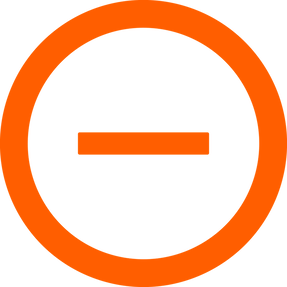|
For the past few weeks, I have been looking at everything, from my schedule to my closet to my task list, and asking myself a question… What can I subtract? At our February CliffsNotes Book Club meeting, we discussed the book Subtract: The Untapped Science of Less by Leidy Klotz (if you missed it, check out the notes on the portal). Sally Bloomberg led the discussion and pushed us to identify something we can stop doing, or cut out from our lives, to find more joy. The book takes a broad look at the notion of stopping things, resetting priorities so they match your values, and intentionally choosing how to spend your time. The author argues that it is our tendency to add, or to take on more, and over time it can result in a cluttered life. It got me thinking about a challenge many of the leaders we support, through coaching and in leadership programs, struggle with… Some call it “finding balance” and others call it “setting boundaries” or “finding ‘me’ time.” Many dream of taking some time off, a vacation or a sabbatical, to hit reset. While I am a big fan of a true-unplug-vacation, I would argue that the sustainable way to subtract is by looking at your daily routine. Specifically, how do you rework your daily routine, rather than operating in two modes – “on” and “off” – where “off” maybe happens one week a year while at the beach? (Because, let’s face it, a post-vacation glow only lasts so long…) Reprogramming the daily routine is a challenge for many leaders, and it’s helpful to zoom out and look at some of the factors at play. We’re obsessed with time-savers, yet… Tech advances and digitalization have been framed as “timesavers.” Automating our work and the endless list of handy apps seemingly streamline our to-do lists, but we tend to add tasks to fill the space, rather than enjoy the newfound free time. In the book You Are Not Your Brain by Jeffrey Schwartz, we learn the four steps to rewire compulsive habits. Originally designed to help people with OCD (read more in this brief article), the steps can help with common struggles in the office such as the compulsion to check email frequently—even when you have the luxury of a block of time for deep work. The curious thing about the findings presented in the book is that people who were able to overcome their compulsive tendencies then faced an unexpected challenge. They needed to manage and actively tend to their down time. If they did not, they were at risk for a relapse. We’re hungry for info, yet… Gallup poll data tells us that people feel it is harder to be informed about what is happening in the world now that information is readily available at our fingertips. I am old enough to remember when there were exactly two opportunities to hear the news every day – the morning newspaper and the evening news broadcast. Ah, the good old days. Today, with real-time information on happenings across the globe, we feel less informed. It’s harder to vet news sources for credibility, and it’s harder to keep up with the gushing stream of news. On the social front, we keep up with many more “friends” than we used to, given social media. So while we may know what our third-grade bestie, who we have not seen since she was under 4 feet tall, ate for dinner on Saturday, we feel less connected to friends in real life. Research on how we gather socially tells us that Americans see less of our friends in real life. We’re encouraged to continuously improve, yet… The often-cited research, popularized in Malcom Gladwell’s book Outliers, on how it takes 10,000 hours of practice to become an expert also included data on downtime. In addition to the hours of practice, it also takes 12,500 hours of “deliberate rest” and 30,000 hours of sleep/naps in order to become an expert. The downtime is as important! So back to the initial question, what exactly can we subtract? Here are some ideas and questions to get you started. But please pile on! (Oops – I should be encouraging subtracting!) What To Subtract Today
As always, let me know what ideas this inspires and what’s working for you.
0 Comments
Your comment will be posted after it is approved.
Leave a Reply. |
AuthorLaura Mendelow |
|
|
©2020. All Rights Reserved. Mendelow Consulting Group, LLC.


